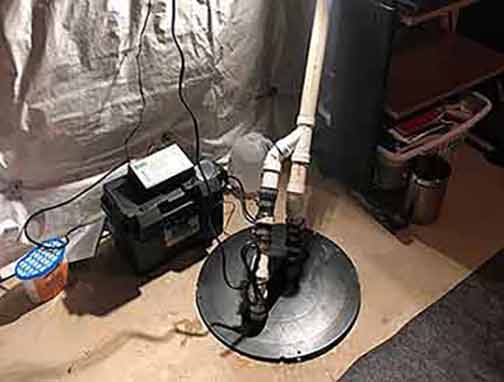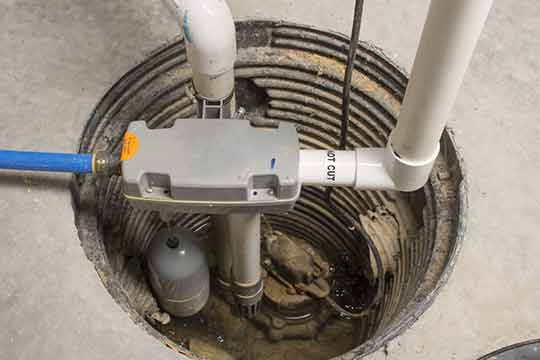
Sump pump installation and repair are essential for homeowners who want to protect their properties from the devastating effects of flooding. Flooding can occur due to heavy rainfall, melting snow, or plumbing issues, and can result in significant damage to your home’s structure, belongings, and even health. A sump pump, when properly installed and maintained, helps prevent water accumulation in your basement or crawl space by redirecting it away from your home’s foundation. In this article, we will explore the importance of sump pump installation and repair in reducing flood risks and safeguarding your property.
Understanding Sump Pumps
Before diving into the details of installation and repair, it’s crucial to understand what a sump pump is and how it works. A sump pump is a mechanical device installed in a specially constructed pit, known as a sump basin, usually found in the basement or crawl space. The sump pump works by detecting water levels in the pit and automatically pumping the accumulated water out and away from your home through a discharge pipe. Acting as the first line of defense against flooding, a sump pump is a valuable asset that can save you from costly repairs and the inconvenience of dealing with water damage.
Installation Process
Proper sump pump installation ensures its effectiveness and longevity. Hiring a professional plumber or waterproofing contractor is recommended for a seamless installation process. Here are the main steps involved in sump pump installation:
- Assessment of the property: A thorough evaluation of your property is necessary to determine the best location for placing the sump basin, ensuring it can efficiently collect water.
- Excavation of the sump pit: The selected area is then excavated to create a pit where the sump basin will be placed. The size of the pit should be suitable for the chosen sump pump model.
- Sump basin and pump placement: The sump basin is carefully positioned within the pit, and the sump pump is securely installed inside the basin.
- Connection of discharge pipe: A discharge pipe is connected to the sump pump, directing water away from your home’s foundation to a safe distance, such as a drain or outdoor area.
- Testing and maintenance: The sump pump is tested to ensure proper functioning, and any necessary adjustments are made. Regular maintenance, including periodic cleaning and inspection, is vital for long-term reliability.

A malfunctioning or damaged sump pump can leave your home vulnerable to flooding.
Sump Pump Repair
Like any mechanical system, sump pumps may require repair or maintenance over time. A malfunctioning or damaged sump pump can leave your home vulnerable to flooding. Here are some common sump pump issues that might require repair:
- Loud or strange noises: Unusual noises coming from the sump pump often indicate mechanical problems or debris obstructing its operation.
- Failure to start or constant running: These issues can be caused by a stuck float switch, clogged impeller, or power supply problems.
- Frequent on/off cycling: Rapid cycling might imply a faulty check valve, improper sizing, or water pressure complications.
- Lack of drainage: If the sump pump fails to drain water effectively, it might be due to a jammed or clogged discharge pipe.
It is advisable to engage a qualified professional plumber to diagnose to repair any sump pump problems promptly. Regular maintenance and inspections can also help identify potential issues early on, preventing sudden failures during heavy rains or melting snow.
Benefits of Sump Pump Installation
Investing in sump pump installation offers various benefits, including:
- Protection against water damage: A sump pump lowers the risk of flooding and prevents costly water damage to your home’s foundation, walls, flooring, and personal belongings.
- Mitigation of mold and mildew growth: By managing excess moisture, a sump pump discourages the growth of mold and mildew, which can contribute to respiratory issues and allergic reactions.
- Promotion of basement usability: A dry basement provides additional livable space for storage, recreation, or even conversion into additional living areas.
- Preservation of property value: Installing a sump pump demonstrates proactive flood prevention measures, which can positively impact your property’s resale value and desirability among potential buyers.
- Peace of mind: Knowing that your home is protected from flooding and water damage allows you to rest easy, even during heavy rainfall or snowmelt periods.
Summing it Up
Sump pump installation and repair are crucial steps toward minimizing your flood risk and protecting your home. By diverting excess water away from your property’s foundation, a sump pump acts as your first line of defense against potential water damage and mold growth. Whether you are installing a new sump pump or repairing an existing one, seeking professional assistance ensures the proper functioning and longevity of this vital system.
By investing in sump pump installation, you not only safeguard your property but also gain valuable peace of mind knowing that your home is well protected against flooding and its detrimental consequences.